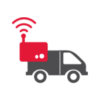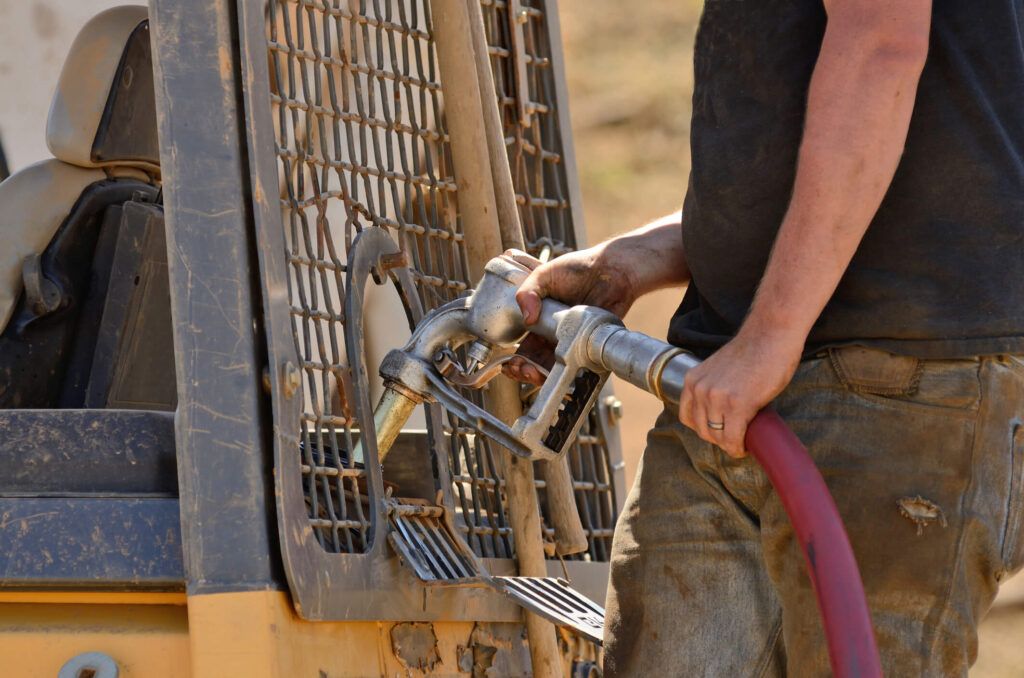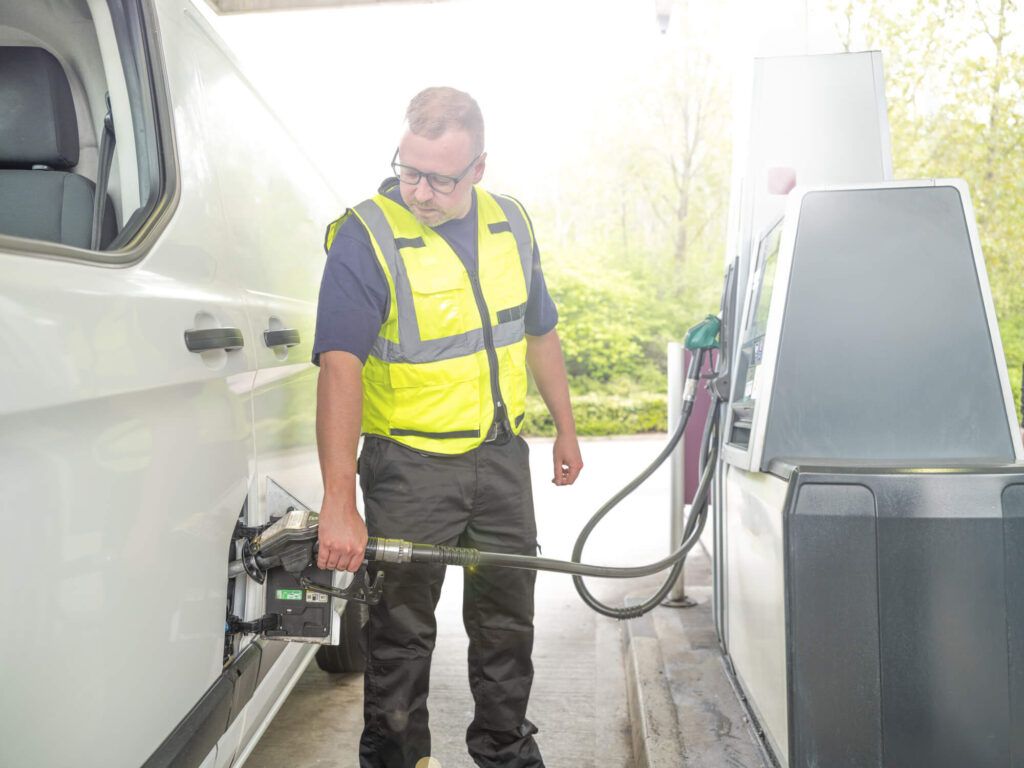
Fuel expenses can dominate your construction fleet’s operational costs, especially when vehicles are dispersed across multiple job sites. Fleet managers navigating the complex intersection of logistics, labor and budgeting need precise control over every gallon of fuel purchased. A robust fuel management strategy, powered by fleet fuel cards, tracking tools and data-backed decisions, provides a powerful framework for controlling costs, improving driver behavior and maximizing operational efficiency.
Each card includes purchase controls, real-time monitoring and detailed reporting enabling construction companies to set limits, track driver spending and control usage based on location, fuel type and transaction time.
Take Complete Control of your Fleet with Fuel Cards
Construction businesses must monitor, manage and optimize fuel usage to remain competitive. The Chevron and Texaco Business Card, Business Access Card and Business Access Flex Card are specifically designed to support these needs. Accepted at more than 8,000 Chevron and Texaco stations, as well as thousands of additional stations nationwide via the Visa or Mastercard networks (for Access cards), these fleet cards offer unmatched accessibility and convenience.
Each card includes purchase controls, real-time monitoring and detailed reporting enabling construction companies to set limits, track driver spending and control usage based on location, fuel type and transaction time. Fleet managers can set spending limits by driver or vehicle. This prevents unauthorized purchases and improves cash flow management.
Track Every Gallon and Every Mile
Fuel tracking is more than just checking receipts — it’s about seeing where every dollar goes. All three offerings from Chevron and Texaco track every fuel purchase in real-time. When an employee buys fuel, the details are automatically recorded in a fleet card dashboard. Real-time data points include:
- Date and time
- Location
- Fuel type and grade
- Purchase amount
- Fuel volume
- Odometer readings
Chevron and Texaco fuel cards also integrate seamlessly with telematics and GPS fleet management systems. These systems offer real-time data on vehicle locations, route efficiency, idling times and unauthorized fuel stops, giving construction businesses a clear view into fleet operations.
Monitoring vehicle movements also helps enforce job site compliance, reduce side jobs on company time and validate billing for client hours — all essential for accurate project costing and profitability. Combined with fleet fuel card data, GPS tracking provides a holistic view of your fleet’s fuel usage and behaviors.
Enforce Accountability with Custom Controls
Construction fleets frequently encounter fluctuating workloads, subcontractor rotations and geographically dispersed projects. Chevron’s Business, Business Access and Access Flex Cards all allow fleet managers to configure transaction-level purchase controls — limiting the type of purchases (fuel only), number of transactions per day, time-of-day restrictions and even specific merchant categories.
These controls help prevent misuse and fraud while also promoting responsible driver behavior. When drivers know they’re being monitored, it encourages greater care at the pump and on the road. Additionally, when limits align with fuel spending policies, employees are set up for success because they know exactly what is expected regarding fuel purchases.
Chevron and Texaco fleet fuel cards provide construction companies with the tools to manage fuel purchases, enforce smart spending habits, simplify operations and achieve measurable savings across the board.
Boost Efficiency with Simplified Administration
Time spent chasing down receipts, reconciling invoices and managing reimbursements is a waste of valuable resources. Chevron and Texaco fleet fuel cards automate these administrative tasks by consolidating all fuel purchases into a single, detailed invoice. This means fewer accounting headaches, less paperwork and more accurate records for tax reporting and budgeting.
Fleet managers gain access to robust reporting tools providing insights into gallons used, average fuel prices, mileage and exception alerts. These reports can be scheduled and customized to fit the operational cadence of any construction company, allowing for the quick identification of anomalies or outliers.
Rebates and Discounts for Maximum Savings
The Chevron and Texaco Business Access and Business Access Flex Cards offer fuel rebates of up to 6 ¢ per gallon at more than 8,000 Chevron and Texaco stations nationwide. For construction fleets that fuel frequently, these rebates can add up to significant monthly savings, putting real dollars back into the business.
In addition to rebates, all three Chevron and Texaco fuel cards offer users access to exclusive discounts on fleet-related purchases, including auto parts, tires, hotels and more. Combined with the power to track and manage all purchases, this delivers a clear advantage for companies operating on tight margins.
Support Safer, Smarter Driver Behavior
Unsafe driving habits such as speeding, aggressive braking and rapid acceleration increase fuel consumption and put your vehicles and drivers at risk. By integrating fleet fuel cards with telematics, construction companies can monitor driver performance and coach safer driving habits using actual data.
WEX telematics offers detailed insight into driver behavior, generating alerts for risky actions and tracking improvements over time. This improves safety, reduces the risk of costly incidents and reduces vehicle wear and tear.
Real-time Alerts and Security Measures

Fraudulent transactions and unauthorized fuel purchases pose a significant concern for businesses operating in the field. Chevron and Texaco fleet cards feature several security measures designed to prevent fraud, including real-time alerts for suspicious transactions, PIN or driver ID verification at the pump and geolocation-linked purchase validation.
This multilayered approach to security protects your fuel budget from internal misuse and external threats, ensuring only authorized drivers are spending company funds.
Fuel Anywhere your Construction Fleet Goes
The construction industry is mobile by nature. Whether your team is working in urban areas or remote rural zones, consistent access to fuel is vital. With the Chevron and Texaco Business Access and Flex Cards, drivers can refuel at any station that accepts Visa or Mastercard, while still maintaining centralized reporting and purchase controls. This means your employees have access to 95% of U.S. gas stations.
A Platform Built for Growing Construction Businesses
As construction businesses grow, so do their fleets and operational complexities. The Chevron and Texaco fleet card platform scales with your needs — whether you’re managing five vehicles or fifty. Add or remove drivers, set custom rules, download transaction data and update spending controls — all from a centralized online dashboard.
Paired with 24/7 customer service and a self-service app for drivers, fleet managers gain control and visibility from anywhere, enabling them to make smarter decisions and respond quickly to issues as they arise.
Reimagine Fuel Management with Chevron and Texaco
In construction, every dollar saved on fuel is a dollar that can be reinvested into equipment, talent or future projects. Chevron and Texaco fleet fuel cards provide construction companies with the tools to manage fuel purchases, enforce smart spending habits, simplify operations and achieve measurable savings across the board.
To learn more or find the right fuel card for your fleet, visit chevrontexacobuisnesscard.com.













 Advanced fleet fuel management solutions help HVAC contractors gain control over fuel expenses and vehicle operations, while increasing efficiency and reducing administrative burdens.
Advanced fleet fuel management solutions help HVAC contractors gain control over fuel expenses and vehicle operations, while increasing efficiency and reducing administrative burdens. 




